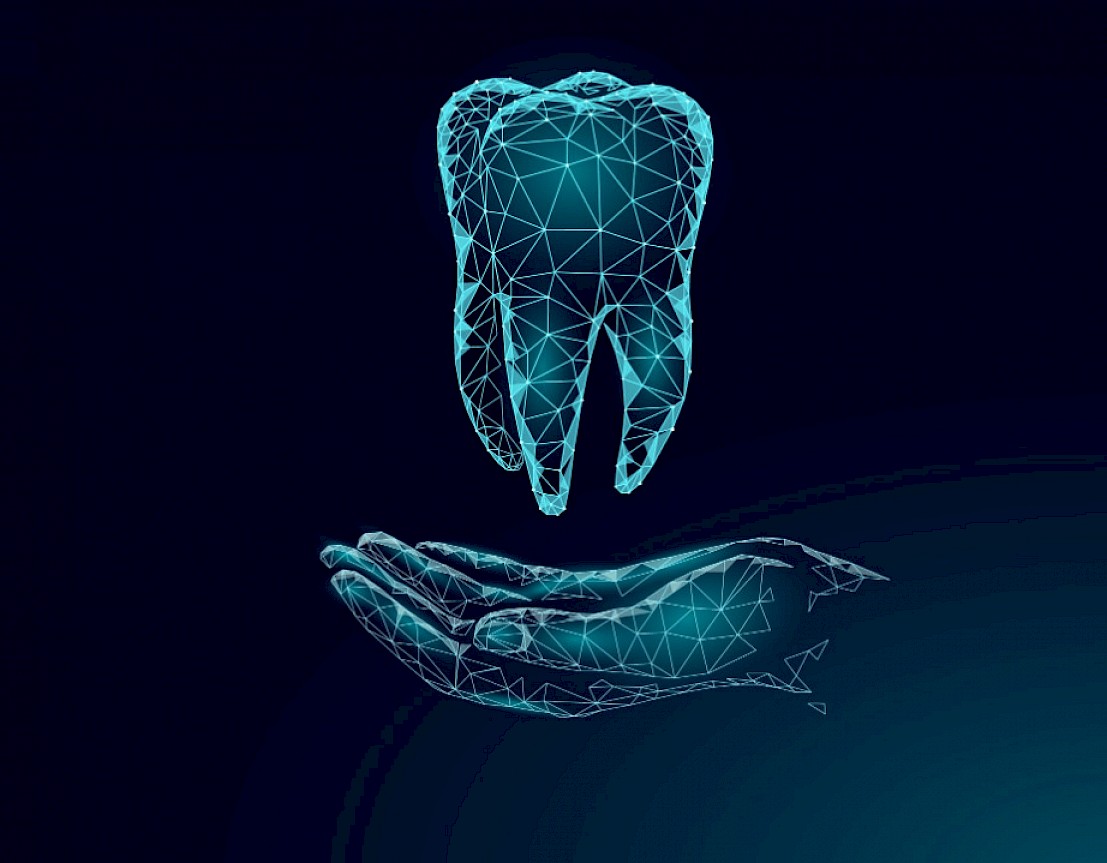Dentistry in the 21st Century

Stem cells can be identified in the stroma (connective tissue) of most tissues and organs. These cells provide a source of cells that become activated upon tissue damage to generate differentiated cell types that promote tissue repair. Specific targeting of these resident stem cells has become a major goal for regenerative therapies.
Using the mammalian tooth as an easily accessible model organ, we have developed a novel drug treatment (ReDent) that activates resident stem cells in the tooth pulp to differentiate into the specialised cell type (odontoblasts) that produce reparative dentine. ReDent thus promotes self-repair of teeth following caries removal. ReDent is anticipated to be in clinical trials in the next 12 months. These same principles are also being applied to the development of stem cell-based treatments for periodontal disease.
Teeth are currently replaced using dental implants or prostheses (false teeth). The ultimate goal of regenerative dentistry is to use bioengineering approaches to develop a method that allows a complete new functional tooth to grow in the mouth. The basic proof-of-principle showing this is possible was established several years ago. Our latest progress in this area will be presented and the remaining obstacles discussed.
Professor Paul Sharpe, King's College London, Head of the Centre for Craniofacial & Regenerative Biology, Dickinson Professor of Craniofacial Biology.

Professor Sharpe was recruited in 1991 to his present Chair at the Dental Institute of Guy’s Hospital (later to merge with King's College London), where he established a new basic research department, the Department of Craniofacial Development and Stem Cell Biology. The department, of which he remains head, now consists of 17 academic research groups with over 100 research staff and in 2017 was awarded Centre of Excellence status: Centre for Craniofacial and Regenerative Biology.
His main research interests are the molecular control of tooth development, dental stem cell biology and tooth bioengineering. He has published over 300 research papers including articles in Nature, Science, PNAS and Cell press. He has supervised over 60 PhD students and currently receives funding from the NIHR, NIH (USA) and various dental companies. He serves on the editorial board of several journals.
In 2004 he was awarded the Craniofacial Biology Research Award by the International Association for Dental Research in recognition of his contribution to the understanding of how teeth develop. In 2006 and 2018 he received the William J. Gies award for best publication in Biomaterials and Bioengineering from the same organisation.
His current research focuses on understanding dental stem cell function and the development of stem cell-based approaches for new therapies in clinical dentistry. The first of these, a novel stem cell-based treatment for dental caries called ReDent, is anticipated to be in clinical trials in the next 12 months.
Attending lectures
Full video
The lecture will be preceded by a short presentation from a CSAR PhD Award Winner.
Harnessing hibernation to treat dementia
Dr. Dhruv Panchal, Wellcome-MRC Institute of Metabolic Science, University of Cambridge
I gained my medical degree from Imperial College, London in 2011 where I also completed an intercalated BSc in neuroscience. I then continued my medical training in Oxford, Brisbane, and London, including the National Hospital for Neurology and Neurosurgery. I am currently a neurology registrar and a Wellcome Trust clinical fellow completing my PhD in the UK Dementia Research Institute at the University of Cambridge. My research interest is in understanding common mechanisms underlying neurodegeneration to try and find common treatments. I am currently researching the cold shock response; a conserved response by the brain when exposed to cold, which is protective in neurodegenerative mouse models. My goal is to continue in a career as a clinician scientist in the dementia field.